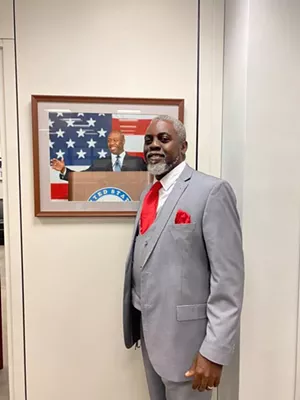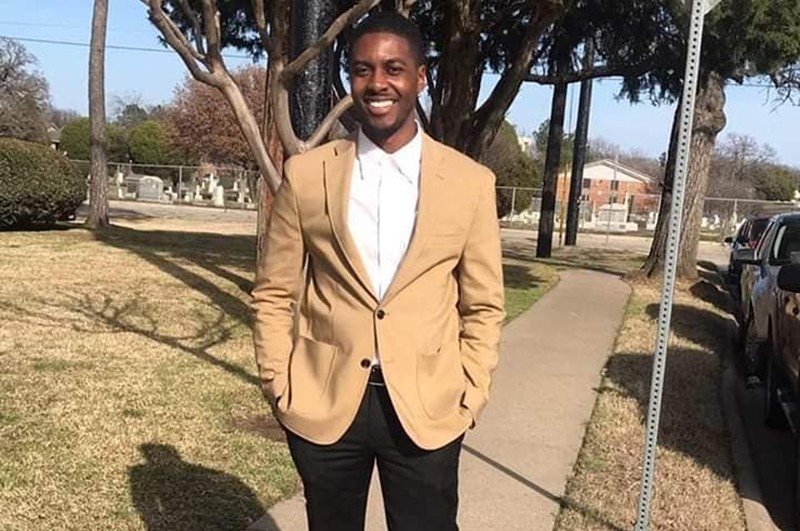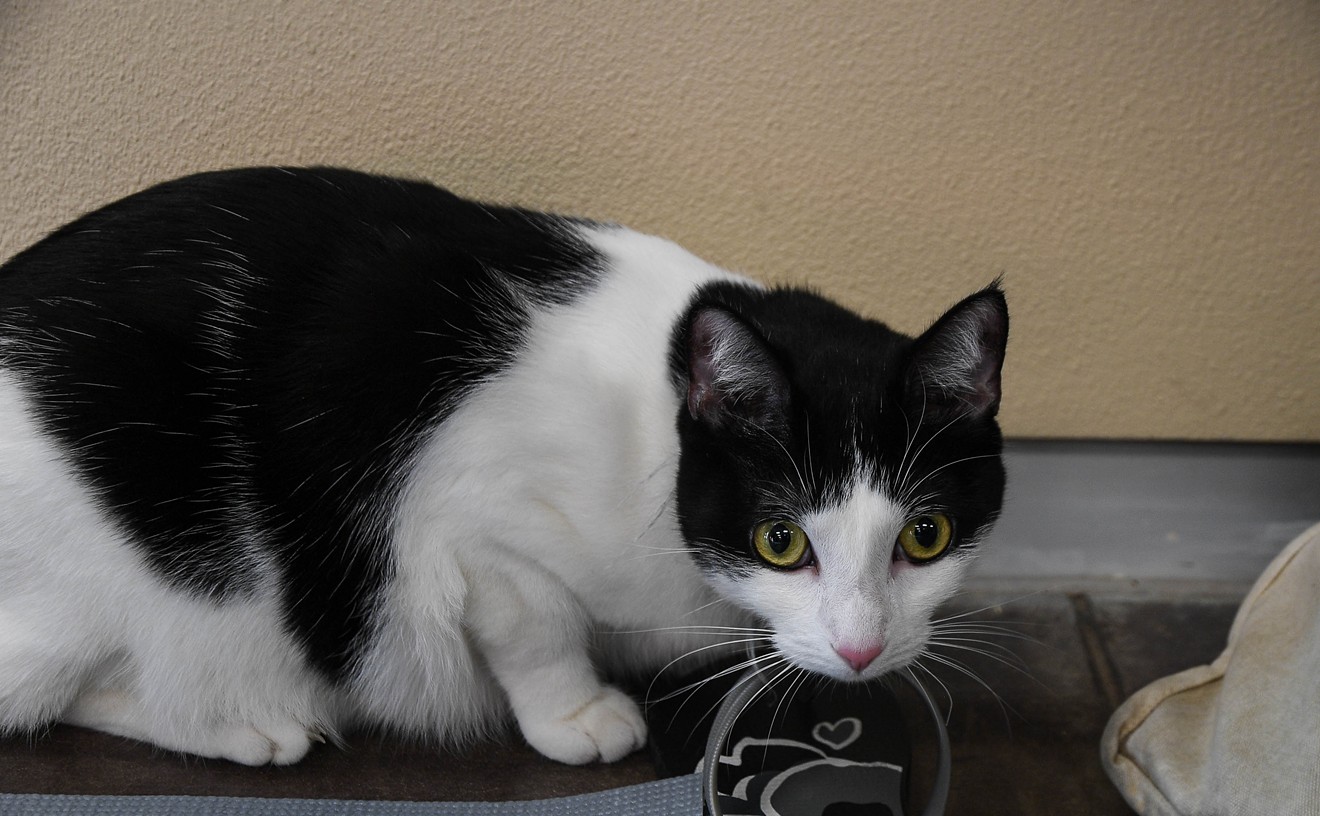Kevin Tarver wants justice. Months before the world learned the names George Floyd, Rayshard Brooks and Breonna Taylor, Denton police shot and killed his son Darius.
A 23-year-old University of North Texas student, Darius Tarver was a criminal justice major and on the dean’s list. He was part of the National Organization of Black Law Enforcement. In his spare time, he’d go to the library to read.
Darius Tarver wanted to become a police officer someday, and he was being recruited by multiple departments, his dad said.
“The very thing he wanted to make better is the very thing that killed him,” his father said.
His son was shot and killed by Denton police last January. He’s one of many young black people to be killed by North Texas law enforcement in recent years: Botham Jean and Atatiana Jefferson were also shot in their own homes.
Now, the Black Lives Matter protests are helping to renew the region’s calls for comprehensive criminal justice reform — including justice for Darius.
Last week, Tarver joined several other families affected by police brutality on a trip to Washington, D.C. There, he met with President Donald Trump, who promised to provide federal assistance in reviewing his son's case.
Tarver said he counts on the president to keep his word. The longer the officer who killed his son remains on the force, the greater the chance that this could happen again.
“With them putting him right back on the street, that endangers somebody else’s life,” he said. “Because if he didn’t care about my son’s life, he’s definitely not going to care about somebody else’s.”
‘A kid in crisis'
Tarver said he’s in no way anti-police; the McKinney resident has long had ties to law enforcement. He’s on the McKinney Chief of Police Advisory Council and serves as a peer support team member and chaplain for the department.Initially, Tarver said he gave Denton officers the benefit of the doubt. He changed his mind, however, once body cam footage of the incident was made public in March.
“[Darius is] not being aggressive, and you can clearly see: Here is a kid in crisis,” Tarver said of the video footage.
After viewing the footage, Tarver started a Change.org petition requesting that Denton County District Attorney Paul Johnson file criminal charges in his son's case. By Tuesday, it had gained over 153,000 signatures.“You have four well-trained officers and one 150-pound kid with a frying pan.” - Kevin Tarver
tweet this
First Assistant District Attorney Jamie Beck said that her office will soon present the case to a Denton County grand jury. The date has been delayed because of the coronavirus pandemic, but she expects it could be heard as soon as August.
The week before his death, Darius was in a severe car crash that caused him to suffer a traumatic brain injury. He was hospitalized but released from the ICU just one day later, Kevin Tarver said.
According to the Centers for Disease Control and Prevention a change in behavior is common following head trauma. Milder symptoms include confusion and nausea, but some exhibit extreme agitation and unusual conduct. It can often take days for symptoms to manifest and weeks to recover fully.
Following his accident, Darius' family reported he was highly sensitive to light. On Jan. 21, the student began roaming the exterior of his apartment complex, smashing his neighbors’ lights with a frying pan, according to police. He was also carrying a meat cleaver.
In the body cam footage, he’s heard muttering to himself about God. Four officers arrive at the scene and ask him to drop his weapons. He doesn't comply and continues talking to himself.
One policeman uses a taser on him, which causes him to flail his arms. The officer later claimed he was struck in the shoulder by the meat cleaver. Then, an officer fires his gun.
After being shot, Darius falls to the ground and police kick the cleaver out of reach. They leave him lying there for several seconds and make no attempt to handcuff him.
Next, the badly wounded student stands up, grabs the frying pan and limps toward the officers. The same officer, whose name has not been released, shoots him two more times.
“He didn’t have to use deadly force with my son; he was already shot and tased,” Kevin Tarver said. “You could have pushed him over.”
“You have four well-trained officers and one 150-pound kid with a frying pan,” he added.
Back on the streets
Following Darius' death, the Texas Rangers launched an investigation. Yet all four officers were back on the streets before the investigation concluded, said Lee Merritt, the Tarver family’s attorney.
In a March news conference, Denton police Chief Frank Dixon said he thought his officers acted appropriately in responding to someone whom they thought was on drugs.
A toxicology report has not yet been released, but Tarver is adamant his son had never done drugs.
Merritt said the Denton officers were not properly trained to help someone in a mental health crisis. In responding to such an emergency, they broke “every rule in the book," he said. The fact they were not properly disciplined makes them even more of a danger to others, he added.
“They feel like they did what they were trained to do, and that is a really scary thing,” Merritt said.
Denton City Council member Deb Armintor has joined Black Lives Matter protesters in calling for police reform. She said $35 million of Denton’s general fund, or 25%, goes to the city’s police operating budget.
Armintor said she hopes the Tarver family will soon see justice for their son.
“I want a precedent to be set that this is not an acceptable use of force, and this is not what de-escalation looks like,” she said.

Kevin Tarver met with President Donald Trump last week to discuss criminal justice reform.
Photo courtesy of Kevin Tarver
For several weeks, Dixon refused to release body cam footage of the incident. Tarver said he and Armintor led the charge in fighting for its release.
When Armintor petitioned to review the video, the city’s attorney, Aaron Leal, emailed her on behalf of the rest of the council. He claimed she did not have permission to do so because her interests were adverse to the city’s, Armintor said.
“I need this information to do my job,” Armintor said, “which is not to play judge and jury but to legislate — to prevent stuff like this from happening again.”
Dixon declined to comment because of the case’s pending grand jury process.
Eventually, Dixon caved to public pressure and aired the footage during a news conference. Yet when Armintor later asked for more information pertaining to the case — including a toxicology report, access to pertinent 911 recordings and Denton police training courses — she said she was again rebuffed.
Leal said that because the case is pending a grand jury trial, it was not within Armintor’s scope as a council member to access those materials. He also said she never filed a Texas Public Information Act request for any information as an individual citizen.
Further, Leal said it’s up not to him to deny such requests. Rather, he is solely there to offer the city government legal advice.
Armintor was later granted access to the requested information after her attorney, Richard Gladden, threatened to file a lawsuit. Leal claimed she was entitled to review the material, although not in her capacity as a council member but as a “member of the public," Gladden said.
“So apparently, by his reasoning, members of the public have a greater right to access than City Council members, which is manifestly ridiculous,” Gladden said.
Gladden said that since the ‘70s, Texas attorneys general have penned dozens of opinions condemning similar occurrences. In 2018, for instance, a Dallas City Council member was also unlawfully denied permission to view a body cam video, he said.
As an elected representative, Armintor has a right to access such information because it will ultimately help her make informed governing decisions, Gladden said.
“If you want to talk in generalities, I can say that I’ve never seen a more illegal and corrupt operation of a city council,” he said.
Defunding the police
Since the recent spate of Black Lives Matter protests began, social justice advocates have amplified calls to defund police. Many argue that law enforcement is not qualified to handle mental health crises. Instead, they say social workers and other health care professionals should be among the first to respond.
To punish officers who recklessly kill, Merritt said that the justice system itself needs to be reexamined. Currently, a judicial doctrine called “qualified immunity” helps to shield government officials from facing legal repercussions.
As long as officers can argue they behaved appropriately according to their training, Merritt said they are not likely to face punishment for bad behavior.
Tarver said he wants more police departments to implement crisis intervention team training. CIT is a community program in which mental health and addiction professionals team with law enforcement to respond to people in crisis.
As of August 2019, CIT reported only 3,000 of the nation’s 18,000 police departments, or around 16.7%, had completed such training.
Mostly, Tarver said he wants to see charges pressed against the officers who contributed to his child’s death.
“My son deserved better,” he said. “And I’m going to do everything I can to fight for his justice."












